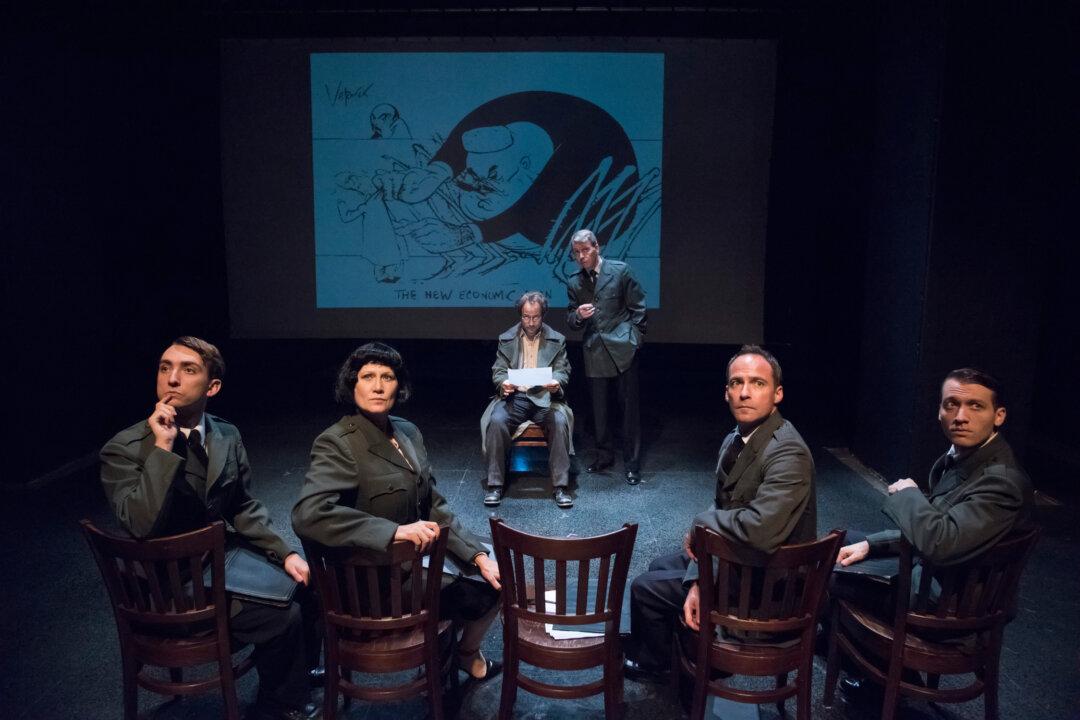NEW YORK—Potomac Theatre Project is presenting in repertory two thoughtful productions that are timely and provocative. Both “No End of Blame” and “Good” offer protagonists undergoing moral struggles. Each, however, is at the opposite end of the moral scale.
In “No End of Blame,” Hungarian political cartoonist Bela Veracek (Alex Draper) holds on to his integrity that demands he draw only what he feels is right and true, even if it means losing everything that most hold dear: love, family, a comfortable home, and financial success.
Bela is not the most attractive of characters. In fact, the first scene finds him about to commit rape on a battlefield. His close friend Grigor (David Barlow) intercedes to save the woman, but Bela goes on to (perhaps) murder an enemy soldier. The incident is ambiguous as it takes place offstage, and Bela says afterward that he has only fired into the air.





